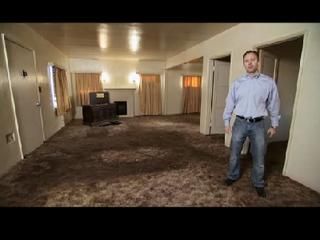Sure, condo living frees you from some of the burdens of home ownership, such as lawn care and maintenance. But you'll still face the reality of unexpected expenses and budget shortfalls -- and thus the special assessment fee.
Assessment fees are payments the homeowners' association (HOA) collects from owners to cover expenses the HOA is responsible for, but that aren't covered in the regular monthly fees. Take lawn care, for example. At a condominium, HOA fees typically cover the cost of a landscape service to weed, feed and mow the grass. But suppose a tree care service is called in to remove a dying tree. The HOA board of directors may vote to impose an assessment fee to pay for that expense. Special assessments may also be needed to meet rising insurance premiums, as in 2005, when some insurance companies in Florida drastically raised their rates for hurricane insurance after an unusually destructive hurricane season [source: Gunderson].
Advertisement
Fees are shared by owners proportionally, based on percentage of property owned, and payment schedules are set by the HOA. Open, honest communication is key when assessments are needed. Any difficulties or disagreements between the HOA and owners can lead to legal action that will cost the entire community. Owners who refuse to pay can ultimately lose their properties.
HOAs can avoid levying some assessments by fostering a healthy reserve. Reserve funds pay for the same types of expenses that assessments do. The difference is that homeowners' contributions to the reserve are included in regular monthly HOA fees. Some states require HOAs to not only have a reserve, but conduct a reserve study, which compares the association's savings to its projected needs.
If you're a potential buyer, you might want to conduct your own study to predict the likelihood of having to pay assessment fees. Talk to current owners about how well the association manages its money. Ask to see the HOA's reserve study -- but keep in mind that only a few states require associations to share this information. Avoid older properties, which are more prone to unexpected maintenance costs than newer ones. The building developer's history may also hold clues. For example, its other properties may have been cited for structural problems, like poor plumbing, which may require a special assessment to remedy. Before signing a contract, make sure you aren't inheriting unpaid assessments, including interest and late-payment fees, owed by the seller.
In some states, HOAs are legally obligated to call for special assessments when needed as part of their fiduciary duty, the responsibility to handle their members' assets prudently [source: Pirraglia]. But regardless of the law, a special assessment is always in the best interests of everyone when something on the property desperately needs to be fixed. If an HOA can't maintain the property, the property value may drop, costing the owners if they decide to sell. Even worse, the grounds may become unsafe, resulting in possible injuries or fines for housing code violations -- and thus more assessment fees.
Advertisement



